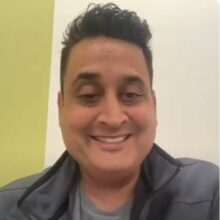Everyone wants to live a long and healthy life, but unfortunately, we cannot see what the future brings. Though we can’t predict the future, we can prepare for it. Planning end of life care is not only important for older adults, but for anyone who wants to have control over their health options in an emergency.
- Advance directive: A document that states your wishes regarding your own medical treatment. It is completed by you while you are of sound mind so that your wishes can be conveyed to others in the event you cannot communicate or are no longer of sound mind.
The Office of the Arizona Attorney General offers a free online Life Care Planning Packet (advance directive form) that breaks down everything you need to know. The packet includes the forms you need to complete to ensure your wishes are followed if you become unable to make decisions yourself for any of the following reasons:
- Unconscious
- Stroke
- Dementia
- Medications that alter cognitive ability
Note: If not for any of the above reasons, two physicians or a physician and psychiatrist will work together to determine if you are able to make healthcare decisions for yourself.
We’ve compiled a list of key considerations for you to keep top of mind as you go through the advanced care planning process.
1. End of Life Planning Protects Your Family from Conflict
Along with ensuring your family and healthcare provider know and follow your preferences, advanced care planning is important because it can take pressure off your family and reduce conflict. This protects your family from disagreements and even legal intervention, as occurred with the family of Terri Schiavo. Schiavo was only 26 years old when she went into a vegetative state. With her family unable to agree on the right course of action, she remained on life support for 15 years without knowing her care preferences. Advanced care planning is important for everyone, no matter how old you are.
Making life-altering decisions could cause an extreme burden on your family if they do not know what you’d want them to do. If you are unable to communicate, there’s several things they could disagree on ranging from prolonging your life to organ donation. Wouldn’t it be easier for everyone if you just told them what you want? The formal documents allow you to have your preferences written down and could reduce or completely avoid any family conflict from occurring due to differing views and opinions on what treatment is best for you.
2. Advanced Care Planning is Your Legal Right
State laws allow us to make future healthcare treatment decisions now, so that if we become incapacitated and unable to make the decisions unexpectedly, our family and doctors know what medical care we do/do not want. Laws vary from state to state, so if your medical documents are on file in Arizona and you end up receiving treatment in Ohio, Ohio laws will likely be followed regardless of what your Arizona forms say. If there’s a strong possibility of your being treated in multiple states, make sure your forms follow the laws of all states where you may receive treatment.
3. You Can Change Your Care Preferences at Any Time
Your preferences may change depending on your age, and that’s okay. For example, maybe you want to receive CPR if you’re strong and healthy, but people who would not do well with CPR (sick, terminally ill, or extremely weak people) may decide to fill out a DNR (Do Not Resuscitate).
You can change or cancel any forms whenever you want. The Office of the Arizona Attorney General recommends reviewing your documents every year and consider changes based on your life circumstances. You will need to destroy previous copies if you make changes and make sure your healthcare representative, doctor, and family have copies of the new documents.
4. Medical Treatments to Consider
Depending on your circumstances, personal beliefs and values, you probably have preferences for situations like life support, organ donation, or CPR. Talking through these different situations and circumstances with your doctor, family, and close friends will help you put a plan in place that you are comfortable with.
- Comfort Care: Enhancing quality of life without artificially prolonging it (Ex: Morphine or other drugs administered to reduce pain)
- CPR and Artificial Breathing (Life Support): CPR is administered if you face sudden death and artificial breathing applies to ventilators that help you breathe if you are unable to breathe on your own
- Artificially Administered Food/Fluids: Can be used when a person is close to death, but can also be used to help a person who is expected to recover
5. Your Doctor Can Help You Make Decisions
Talk through each of the treatments above with your doctor so you can make an educated decision and address any concerns you may have with specific treatments. Your doctor knows your health best and will be able to give you recommendations that make sense for you.
Your doctor will also be able to take you through different circumstances and provide examples on what type of care would be administered in specific scenarios.
6. Your Health Care Power of Attorney is a Key Player
Your health care power of attorney is your main decision-maker if you are ever unable to communicate your care preferences, so this is an important person to consider. This person will be able to make decisions about your healthcare, treatments, services, procedures, and can hire and fire providers (including home health, physical therapy, etc.). You legally establish this person as your “agent” by filling out the Health Care Power of Attorney document.
Pro tip: Be sure to provide a copy of the document to your designated decision-makers, as well as your doctor and anyone else who may be contacted about your wishes, such as family members and close friends.
In Arizona, a separate Mental Health Care Power of Attorney document must be completed to establish an “agent” for your mental healthcare in case you ever become unable to make mental health decisions for yourself (must be determined by a neurologist, psychologist, or psychiatrist).
They can make any healthcare decision, including to stop tube feeding (Terri Schiavo had not legally established her husband as her key decision-maker, which is why there was conflict with her parents on this topic). If you do not establish a health care power of attorney, the court will try to appoint a guardian to make decisions on your behalf.
If there is no court-appointed guardian, your health care provider will contact a “surrogate” in this order:
1. Spouse
2. Adult children (majority rules if multiple children)
3. Parent(s)
4. Domestic partner
5. Brother/sister
6. Close friend
Can you see how leaving the decision-making in the hands of these people might become tricky and cause conflict?
Something to keep in mind: Under Arizona law, only an agent (established with the signed form) or guardian (established by the court) can make the decision to stop tube feeding once it has begun. This means, if you ended up having a surrogate decision-maker (who was chosen by your healthcare provider), they will not be allowed to make that decision for you under Arizona law, whether you’ve expressed that preference to them or not. This is why filling out the legal documents is a very important part of the process.
A surrogate decision-maker also cannot make the decision to admit you to an inpatient psychiatric facility, unless a mental health provider believes it is necessary.
7. A Living Will Can Relieve Pressure on Your Loved Ones
A living will is a document that allows you to make your wishes known about the medical care that you would like to receive (or not receive) if you have a terminal condition, are in an irreversible coma, or a persistent vegetative state that doctors reasonably believe to be irreversible or incurable. This document is separate from the health care power of attorney, but would give that person a “guide” for making these difficult decisions and ensure your wishes are carried out. A blank living will is available on the Attorney General’s website.
This document will cover a variety of situations, including:
- Decisions about end-of-life care
- Life support
- CPR
- Ventilator
- Feeding tube
- Dialysis
- Spiritual requests
- Comfort requests
8. Reasons You Would Want to Have a DNR (Do Not Resuscitate) Order
A Do Not Resuscitate order (pre-hospital order) is a document where it is stated that in the event that your heart and breathing should stop, you do not wish to be resuscitated. If you are healthy and strong, you may not wish to complete a DNR. Your doctor is required to sign off on the DNR and most often, people choose to file a DNR for these reasons:
- No medical benefit expected: CPR is a vigorous emergency procedure and is not always successful. It was not designed for people who are terminally ill or have severe health problems
- Quality of life would suffer: In the medically fragile, CPR often results in broken ribs/sternum. If the patient survives, they may suffer damage to the brain or other organs.
- Death is expected soon: People with terminal illness may not want aggressive interventions, but prefer a natural peaceful death.
9. You Will Need a Witness
The legal forms (Health Care Power of Attorney, Living Will, and Mental Health Care Power of Attorney) must be signed by a witness or a notary. The witness must be at least 18 years old and cannot be related to you by blood, adoption, or marriage.
If you are a member of Arizona Care Network, our team is available to answer questions or help you with life care planning packet materials 24/7. You can download the full packet to get started. Contact ACN’s concierge line by calling 602.406.7226 or emailing members@azcarenetwork.org. Our team knows how important it is for everyone to establish an end of life care plan and we are always willing to work with you and your doctor through this process.
Source: Office of the Arizona Attorney General’s Life Care Planning Packet




